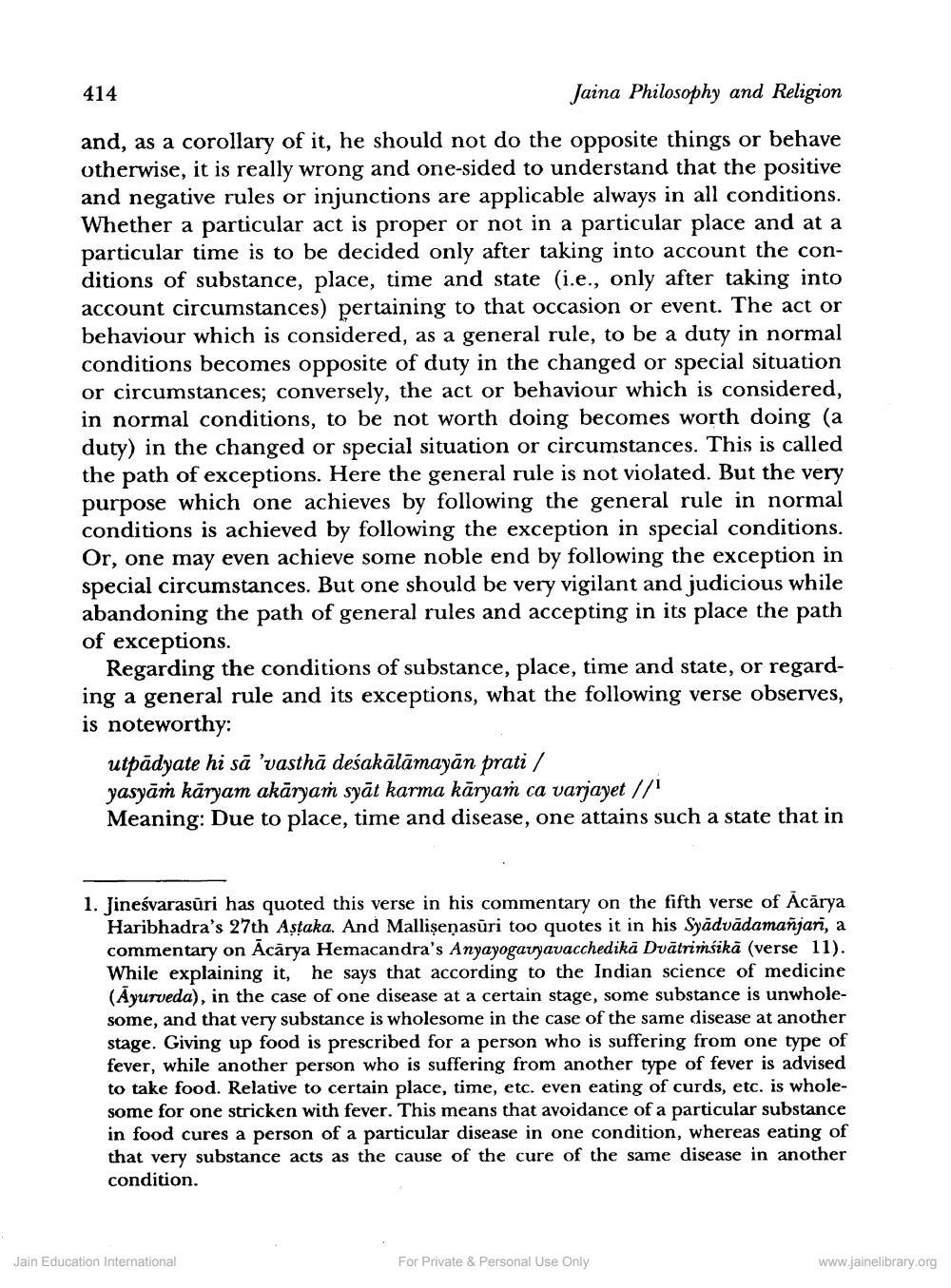________________
Jaina Philosophy and Religion
and, as a corollary of it, he should not do the opposite things or behave otherwise, it is really wrong and one-sided to understand that the positive and negative rules or injunctions are applicable always in all conditions. Whether a particular act is proper or not in a particular place and at a particular time is to be decided only after taking into account the conditions of substance, place, time and state (i.e., only after taking into account circumstances) pertaining to that occasion or event. The act or behaviour which is considered, as a general rule, to be a duty in normal conditions becomes opposite of duty in the changed or special situation or circumstances; conversely, the act or behaviour which is considered, in normal conditions, to be not worth doing becomes worth doing (a duty) in the changed or special situation or circumstances. This is called the path of exceptions. Here the general rule is not violated. But the very purpose which one achieves by following the general rule in normal conditions is achieved by following the exception in special conditions. Or, one may even achieve some noble end by following the exception in special circumstances. But one should be very vigilant and judicious while abandoning the path of general rules and accepting in its place the path of exceptions.
414
Regarding the conditions of substance, place, time and state, or regarding a general rule and its exceptions, what the following verse observes, is noteworthy:
utpadyate hi să 'vasthā deśakālāmayan prati /
yasyām kāryam akaryaṁ syät karma karyaṁ ca varjayet //
Meaning: Due to place, time and disease, one attains such a state that in
1. Jinesvarasuri has quoted this verse in his commentary on the fifth verse of Acarya. Haribhadra's 27th Astaka. And Mallisenasûri too quotes it in his Syadvadamañjari, a commentary on Acarya Hemacandra's Anyayogavyavacchedika Dvātrimsikä (verse 11). While explaining it, he says that according to the Indian science of medicine (Ayurveda), in the case of one disease at a certain stage, some substance is unwholesome, and that very substance is wholesome in the case of the same disease at another stage. Giving up food is prescribed for a person who is suffering from one type of fever, while another person who is suffering from another type of fever is advised to take food. Relative to certain place, time, etc. even eating of curds, etc. is wholesome for one stricken with fever. This means that avoidance of a particular substance in food cures a person of a particular disease in one condition, whereas eating of that very substance acts as the cause of the cure of the same disease in another condition.
Jain Education International
For Private & Personal Use Only
www.jainelibrary.org




